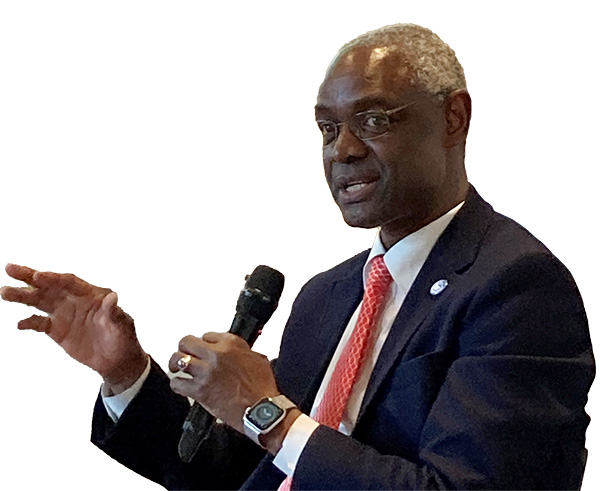
“Food, feed, fibre are services that are provided by land and that we take for granted.”
Highlights
Solutions for a d(r)ying world?
On 10 May, CDE, WOCAT, and the Swiss Agency for Development and Cooperation (SDC) were inviting to a high-level event with Ibrahim Thiaw, Executive Secretary of the United Nations Convention to Combat Desertification (UNCCD). The topic could hardly be more pressing: How can we achieve land degradation neutrality by 2030?
Healthy land is central to the well-being of our planet’s ecosystems and biodiversity; it feeds us, shelters us, and represents the backbone of our global economy. But today, up to 40 per cent of the world’s land is degraded. And around half of humanity is directly affected.
Effective sustainable land management is therefore crucial. The question is: Do we have the knowledge and the tools for it? And: how can we work together to restore land and boost resilience?
During his official visit to Switzerland, Ibrahim Thiaw, Executive Secretary of UNCCD, gave a keynote speech at the University of Bern on the future of our lands. The speech was followed by inputs from CDE researchers and a high-level panel discussion. As reasons we should be concerned about land degradation, he stressed that:
- land degradation has reached unprecedented levels;
- land loss is equal to economic loss; and
- habitat loss leads to major health threats.
In a follow-up presentation, CDE researcher Markus Giger pointed out that appropriate land tenure rights are important to enable farmers – women and men – to invest in the productivity of land and in sustainable land management practices. In the panel discussion, SDC’s Marylaure Crettaz added that: “When talking about sustainable land management and land degradation, it’s not enough to talk about soil quality, we must also address land governance and land tenure.”